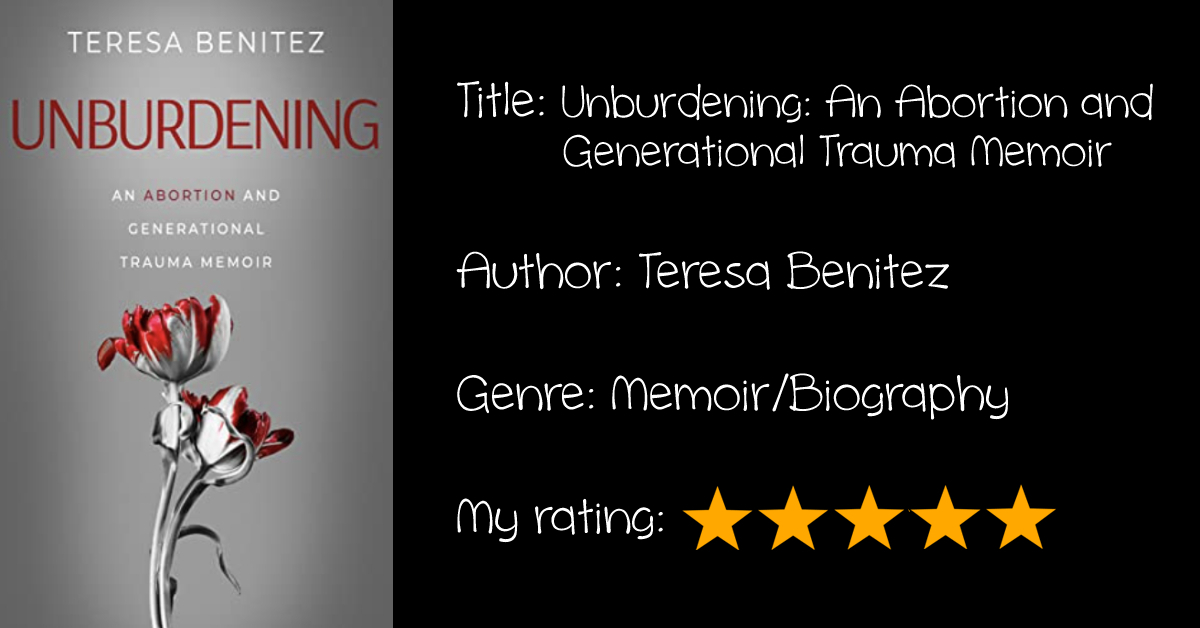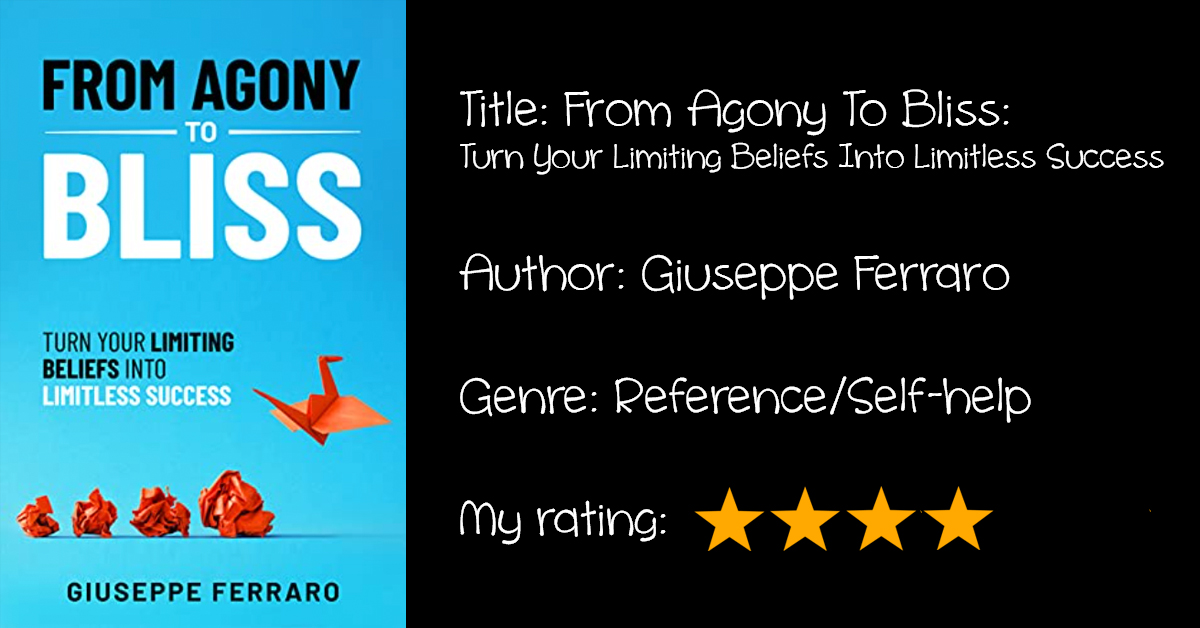Review: “Unburdening: An Abortion and Generational Trauma Memoir”
I chose this from an ARC program because I enjoy memoirs and the opening few paragraphs captured me.
The Premise
The author recounts her life, including experiences of three abortions she had at different times at her life, recalling her reasons and the after-effects both physical and emotional.
The Pros & Cons
An abortion may end one life, but it can save another — Teresa’s story is the epitome of this.
A promising, “stellar” engineering student, her first abortion emerged as the result of youthful promiscuity. After unsuccessfully attempting to contact the father, she decided to terminate it. The experience was traumatic and painful, but most of all confusing. Though an educated young woman, she could barely understand the terminology and the medical jargon.
Her second abortion a few years later was a more calculated decision. In a “frail” relationship because she “still did not know how to love,” she knew that she was still not ready, and refused to be pressured by the father who insisted that he wanted the child.
With her third pregnancy, however, she felt as though a child would be the answer:
Raising this child could be the antidote to my afflictions, like a magical elixir that instantly and irreversibly redacts a script, effectively turning me into the person I have always wanted to be, without any effort of my own. […] I’m ready. Right? […] So, how hard can it be? A blessing. That’s what everyone says. I don’t need to sit here paralyzed, and I don’t need to make the wrong decision. I can make a choice of peace and beauty; a new choice.
This third pregnancy eventually resulted in her daughter Teresita; however, it did not bring the peace and joy she had hoped for, but postpartum depression and addiction.
Over the next few years, she struggled to balance her mental health with her astounding career as an engineer and professor while raising a young child. Meanwhile, her relationships with her family members were fraught with tension, particularly with her mother — an experience that she feared she would pass onto her own daughter. Also, the child’s father John never “came around” to being a father:
[…] There is no “world” hurting Teresita; it’s me. I’m the one who hurts her. […] I am trapped in a generational chain of damage and cruelty. My mother was hurt, so she hurt me. John was neglected, so he neglects. Almost like we do not have free will. Like we are predisposed to mirror what we learned.
Nevertheless, her story is one of triumph: despite everything thrown at her, she makes changes to improve her life, to be a more involved mother, and to start her own journey of healing through therapy and medication.
Notably, Teresa’s experiences take place against the backdrop of the U.S.A.’s changing political landscape, and she learns of her fourth pregnancy on the same day that a critical abortion legislation is signed. This fourth pregnancy becomes her third abortion, and though she considers having the child, she soon comes to terms with her choice:
This was a choice of empowerment. I chose to persevere. I chose to give Teresita the best of me. To give myself the best of me.
Conclusion
This memoir was an emotional journey from beginning to end. Told with raw honesty that is painful to read at times, the author’s voice intrigues the reader as it veers from pragmatic to poetic prose as she opens up her life to scrutiny with her words. Despite the personal, painful topic, the writing was a pleasure to read. I would recommend this to everyone, but particularly to women facing a similar difficult choice.








